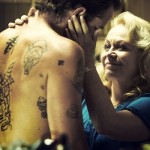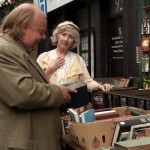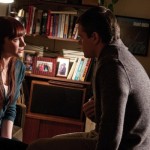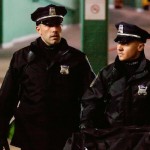The Twilight Saga: Eclipse Review
I’m no fan of The Twilight Saga. The films are awkward, forced, poorly written, and feature worse acting than many soap operas. But I’ve seen the first two, so I feel obligated to finish the series out. For better or worse, I will find out how Bella, Edward, and Jacob resolve this crazy thing called love.
What The Twilight Saga: Eclipse taught me is that even a somewhat compelling story is doomed when you’ve got terrible writing. Even some genuine intrigue and suspense isn’t enough to give wooden actors a spark. And even being the best film in a series isn’t enough for me to necessarily recommend it. Yes, David Slade’s Eclipse is the best two hours we’ve spent with this trio of characters, but that’s one of the only good things I have to say about this film.
When we last left Bella Swan (Kristen Stewart) in The Twilight Saga: New Moon, she and Edward (Robert Pattinson), a vampire, had decided it was for her own safety that she becomes a vampire also. But before the transformation was to happen, the two lovers would marry. While they are enjoying a blissful life together, dark things are happening in Seattle. A former nemesis of Edward’s, Victoria (Bryce Dallas Howard) is amassing an army of vampires to take on the Cullens and get revenge for the death of her lover. Meanwhile, Jacob (the abs-tastic Taylor Lautner) is upset over losing Bella, but he’s forced to put his disdain for Edward aside in order to protect Bella from Victoria’s army.
I now understand what people who don’t read Harry Potter (actually, do such people really exist?) feel when they say the films are too, for lack of a better word, exclusive. By that I mean, they only cater to die-hards, those who know the books inside and out. It was never a problem for me with that series, but it is here because I had the damnedest time trying to figure out who was who and what was going on. I should’ve known at that point that Slade isn’t trying to cater to me. He wants to please the fans, and that’s fine, but it held me at an arm’s length and made the film’s faults even more glaring.
The biggest fault is the plot, which also happens to be the film’s only real asset (don’t worry, I’ll explain that intentionally contradictory sentence). Events don’t exist in this film organically. Rather, everything that happens happens because the plot requires it. Victoria pops up as a major threat because Edward and Jacob need to be brought together. Bella acts indecisively toward the two men because the plot needs them to feel jealousy and hatred toward each other. And the Volturi pop up awkwardly because…well, I’m actually not sure why they pop up, but my guess is that they are important in the final “saga,” and Slade wanted to remind us that they exist.
But for all its narrative deficiencies, the film manages to develop more tension than the other entries in the series combined. The climactic battle is actually somewhat engaging, as are the various chases through the Washington woods. In the end, the tension feels a bit superficial, but in the moment, I felt a minor connection to this film.
That being said, the screenplay is still a disaster (unsurprising considering the quality of the source material). The acting is as bad as anything I’ve seen this year. Taylor Lautner showed a modicum of presence in New Moon, but he seriously stumbles here. Kristen Stewart is a very good actress in every movie except for these (she’s far too one-note to make us care about Bella). As for Robert Pattinson…let’s just not get into his issues. We’d be there all day.
In the end, however, no amount of negative buzz can stop this franchise. “Twihards,” as they’re called, clearly don’t care about reviews. But hey, maybe Bill Condon can give us non-fanatics a reason why we shouldn’t regret having sat through this whole inane series—something Catherine Hardwicke, Chris Weitz, and now, David Slade have unfortunately been unable to do.















